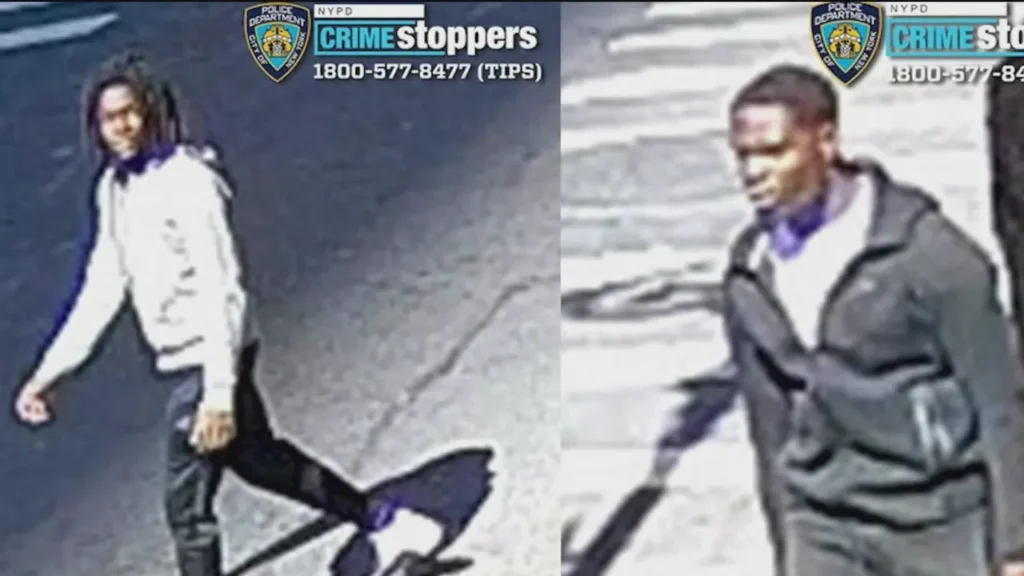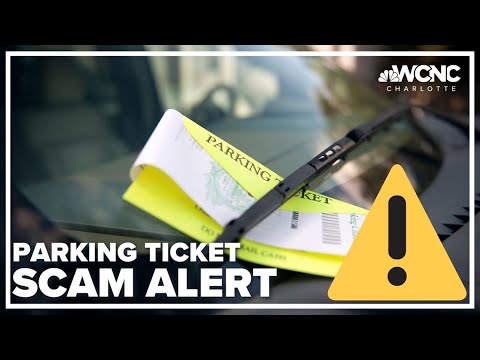|
Getting your Trinity Audio player ready...
|
Tourists & Locals Beware: Scammers in New York City Out in Full Force
Edited by: Fern Sidman
Navigating the vibrant streets of New York City offers countless experiences, but it also presents opportunities for scammers targeting both tourists and locals. Travel vlogger Jon Barr, known for his “Here Be Barr” channel, has highlighted prevalent scams in the city. Building upon his insights and corroborating with recent reports, here’s an in-depth look at these deceptive practices and how to avoid falling victim.
- Counterfeit Apple Products
Chinatown’s bustling Canal Street has long been a hub for bargain hunters and street vendors. However, in April of this year, The New York Post reported that a concerning trend that reveals that sidewalk peddlers in the area are going high-tech, offering Tourists & Locals Beware: Scammers in New York City Out in Full Force that mimic popular gadgets like AirPods Pro and AirPods Max.

These knockoffs, marketed at prices as low as $40, are a far cry from their legitimate counterparts, which retail for up to $550. Back in April, the New York Post observed some 30 street vendors hawking these fake Apple products. The issue appears to be growing rapidly, with local activists and residents voicing frustration about the increasing presence of these peddlers.
Karlin Chan, a Chinatown activist, expressed his concerns about the proliferation of counterfeit goods. “Their numbers have grown substantially in the past month,” he told The New York Post. “On a weekend day, there are maybe three to four dozen working Canal Street between Lafayette Street and Mott Street. You can’t miss them.”‘
To investigate, a reporter from The New York Post, with Chan’s assistance, purchased two counterfeit items from sellers on Mulberry Street and Canal Street: a pair of “AirPods Max” and a set of “AirPods Pro.”
The discrepancies in quality were immediately apparent. The “AirPods Max” box was smaller than genuine Apple packaging, lacked proper sealing, and featured grammatical errors in its instructions. Unlike authentic AirPods Max, which are made of aluminum, the counterfeit product was constructed from plastic.
The negotiation started at $150 but quickly dropped to $40. A similar pattern followed with the “AirPods Pro,” where the vendor initially asked for $100 but settled for $50. Although the external packaging looked authentic, the internal components betrayed their fraudulent nature. The plastic packaging deviated from Apple’s sustainable design, and the earbuds featured outdated technology, such as a non-removable cushion and a lightning connector Apple has phased out.
According to The New York Post, many of the counterfeit peddlers are West African migrants with limited English proficiency. Equipped with plastic bags stuffed with fake “Apple” boxes, they approach pedestrians, showcasing their goods with persistent sales pitches. Using apps like “translate text” on iPhones, these sellers communicate with potential buyers and answer questions about the products.
- Central Park Donation Scam
A new wave of scams is sweeping through Manhattan and Brooklyn, with young con artists duping unsuspecting New Yorkers by claiming to raise funds for struggling basketball teams. According to a recently published report in The New York Post, the NYPD has identified this as a citywide crime pattern, with at least 39 incidents reported in 2024 alone, resulting in losses exceeding $76,500.
As reported by The New York Post, the scam typically begins with a pair of young individuals approaching their targets, often in public spaces like parks or streets. One scammer distracts the victim by sharing an emotional story about their basketball team needing support. Under the guise of collecting donations, they convince the victim to hand over their phone to process a payment through apps like Zelle or Venmo.
While the victim is preoccupied, the scammers quickly transfer thousands of dollars to themselves. The New York Post report highlighted how these criminals exploit people’s goodwill and reliance on digital payment platforms to execute their scheme.
One of the more high-profile victims of this scam is former Miss New York USA, Briana Siaca. As reported by The New York Post, Siaca fell prey to the scheme earlier this year while recovering from dental surgery.
While sitting in Madison Square Park and listening to a podcast, two teenage boys approached Siaca, claiming they were raising money for a South Bronx basketball team. She agreed to donate but explained she didn’t have cash on hand. The scammers then offered to process her contribution via Venmo or Zelle.
Siaca described to The New York Post how one boy took her phone while the other distracted her with more information about the team. Suspicious of the delay, she snatched her phone back, only to find that the scammers had transferred $2,000 to themselves. The teens ran off before she could take further action, and no arrests were made in her case.
Following the string of incidents, the NYPD has issued an advisory urging New Yorkers to remain vigilant. As noted by The New York Post, the department recommends never handing over your phone to strangers, no matter how compelling their story. Additionally, New Yorkers should be wary of wire transfer requests for sports teams, school activities, or non-profit organizations.

- Fake Parking Tickets
A new scam targeting New Yorkers is raising alarms about the dangers of fraudulent parking ticket notifications that could lead to identity theft. According to NBC News, scammers are sending deceptive text messages claiming recipients have unpaid parking tickets or toll fees in New York City. These messages direct victims to a fake website, where sensitive personal information is harvested for illicit purposes.
As reported by NBC News, the scam begins with a seemingly official text message purportedly from “NYC Citypay,” claiming the recipient owes money for an unpaid parking ticket or toll. The text includes a link to what appears to be an official city website.
Once the unsuspecting victim clicks the link, they are redirected to a fraudulent site designed to mimic legitimate city payment portals. The website then requests personal information, such as the victim’s name, date of birth, driver’s license number, and credit or debit card details. According to NBC News, this information is often sold on the dark web or used to commit identity theft.
The type of fraud used in this scam is known as “smishing,” a term derived from “SMS phishing.” As described by NBC News, smishing involves sending deceptive text messages to trick individuals into revealing sensitive personal information. This scam tactic is increasingly common, with fraudsters using realistic-looking websites to gain victims’ trust.
The information stolen in these scams can be used in various criminal activities, including opening fraudulent accounts, making unauthorized purchases, or selling personal details on the dark web.
NBC News provided a list of the 11 fraudulent domains shut down in connection with the scam. These include:
nycitypay.com
newyorktollbymail.com
tollsnewyorkbymail.com
tollwebmail518ny.com
nytoll585.com
nyaccounttoll.com
mailny8291.com
nytollbymail.com
nytolls2229.com
nybymail.com
ny1ezpassexpress.com
To avoid falling victim to smishing scams, officials recommend:
Never clicking on unsolicited links: If you receive a text claiming you owe money, verify the claim through official channels.
Checking the sender: Be cautious of messages from unknown numbers or email addresses.
Educating yourself about official practices: NYC does not request payments via text message.
- Overcharging at Bodegas and Street Food Carts
Some unscrupulous vendors, particularly in tourist-heavy areas, overcharge for common items like drinks or snacks. Prices may not be displayed, leading to exorbitant charges. Always ask for prices beforehand and be cautious if they seem inflated.
- Statue of Liberty and Staten Island Ferry Ticket Scams
Unauthorized sellers, especially around Battery Park, peddle deceptive tickets that don’t grant access to the Statue of Liberty or Ellis Island. Statue City Cruises, the official operator, has raised concerns about these scams, noting significant financial losses and daily deception of thousands of tourists.
Additionally, the Staten Island Ferry is free, yet scammers have been known to sell fake tickets. Always purchase tickets from official sources and remember that the Staten Island Ferry doesn’t require a ticket.
- AI Voice Cloning Scams
Advancements in AI have enabled scammers to clone voices of loved ones, making urgent requests for money transfers. If you receive such a call, verify the situation by asking personal questions only the real person would know or by contacting them through known channels.
- Fake Uber Drivers at Airports
At JFK Airport, individuals posing as Uber drivers offer rides at inflated rates. Always use the app to book your ride and avoid accepting rides from drivers who approach you directly.
- The Fake Monk Scam
Imposters dressed as monks offer trinkets in exchange for donations to nonexistent temples, then pressure you for money. Politely decline and disengage to avoid these scams.
- The CD Hustle
Individuals posing as musicians hand out CDs, then demand payment or a tip, often becoming aggressive. These CDs are frequently blank. It’s best to refuse any unsolicited items from strangers.
- Costume Character Shakedown
Costumed characters in Times Square pose for photos and then aggressively demand tips. If you wish to take a photo, agree on a price beforehand to avoid confrontations.
- Dropped Item Scam
A scammer intentionally bumps into you, drops an item, and accuses you of breaking it, demanding payment. Firmly refuse and walk away without engaging.
- The “I Need Money” Hustle
Individuals near transportation hubs ask for money for various fabricated reasons, such as needing to get to another city. Exercise caution and avoid giving money to strangers without verifying their story.
- Three-Card Monte and Shell Game Hustles
These classic street games are rigged, with scammers and their accomplices ensuring you lose. Never participate; it’s impossible to win.
Protecting Yourself
Vigilance is key. Be skeptical of unsolicited offers, avoid handing over personal items like your phone, and always verify the legitimacy of any transaction or request. By staying informed and cautious, you can enjoy the myriad experiences New York City offers without falling prey to these scams.





